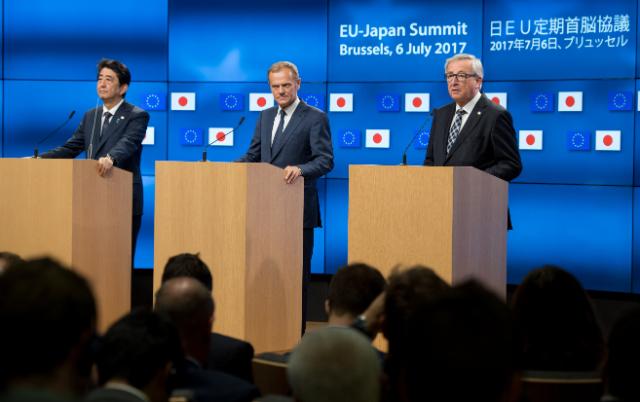Blog Archive

The European Citizens’ Initiative – Direct Democracy as a parallel to parliamentary democracy?
By Hanneke van Eijken and Simona de Heer
EU citizens have a political right to submit an initiative for new legislation to the European Commission. This is called the European citizens’ initiative, enshrined in Article 11 TEU, and further regulated in Regulation 211/2011. This form of direct, participatory democracy could be seen as a tool to foster citizen participation and to bring the EU closer to its citizens. It was introduced in the Lisbon Treaty as a response to even out the EU’s democratic deficit. Recent citizens’ initiatives cover issues as climate change, education for children with disabilities and evaluation mechanisms to see whether Member States adhere to European values.
From a regulatory perspective it is interesting to see whether regulation of direct democracy through the introduction of the EU citizens’ initiative is an effective tool for strengthening democracy and where its pitfalls lie. Since its introduction the citizens’ initiative has been subject to criticism as to its effectiveness. Currently, the European citizens’ initiative is being reformed. This raises questions about the effectiveness of the reformed citizens’ initiative and how it relates to parliamentary democracy. First, the weaknesses of the current citizens’ initiative will be discussed. Secondly, the reform and its achievements will be elaborated on. Finally, the relationship between parliamentary democracy and direct democracy will be examined.
Read more
The Reform of the Common European Asylum System: Between Recast and New Regulation
By Salvatore Nicolosi
Twenty years after the European Council of Tampere that in 1999 set out the political roadmap to establish a Common European Asylum System (CEAS), the European Union and its Member States still struggle to design a solid and future-proof system. The migratory pressure on the EU increases the need for effective responses. With more than 1 million people reaching Europe in 2015 and more than 18,000 drowning at sea in the period between 2014 and 2019, a solid asylum system becomes all the more urgent.
The reform of the CEAS certainly constitutes a relevant context to reflect on the dynamics of regulation in a particular sensitive area of European integration. Nonetheless, a closer look at the ongoing reform illustrates how this lays behind the actual way forward to the realisation of the goals established in Tampere twenty years ago.
Read more
First Impressions of Google AdSense Decision
By Viktorija Morozovaite
The Google AdSense decision has come out on the 20th of March, 2019. With imposition of €1.49 billion fine it marked an end to the third European Commission’s investigation into tech giant’s practices, each resulting in spectacular penalties (together rounding up to €8.2 billion – a sum equivalent to Benelux countries’ annual contribution to the EU budget) and advancing the debate between competition practitioners and academics worldwide. Admittedly, the outcome did not come as a surprise to many – over the past decade, European Commission seem to have become the nemesis of giant tech companies with investigations into practices of Google, Apple, Facebook and Amazon. While the full decision is not published yet and it is difficult to comment on its merits, this blog post aims at distilling some of the ongoing issues, placing the decision in the broader context.
Read more
Brexit and the ways forward for the UK and EU agencies
By Lisette Mustert, Béla Strauss, Miroslava Scholten and Matthew Wood
Brexit raises the question of which way forward for the UK in its relationship with the EU and with EU agencies. For future research and legislative design, this in turn raises a more fundamental question of when which type of agreement between a third country and EU agencies is appropriate, in light of factors such as salience and the interests on both sides. Having analysed all EU agencies’ founding acts, we show in this post that there are three types of formal relationships that exist at this moment between EU agencies and other countries: full membership, observership and cooperation. We argue that the type of this relationship would vary for the UK depending on the score of ‘Brexit salience’, a concept that we introduce. The higher the ‘Brexit salience’ rating is, the more formal the arrangement – full membership or observer – the UK (and the EU) would need to have with an EU agency. According to our scores, this would concern the European Medicines Agency (EMA) and the European Aviation Safety Agency (EASA). In the case of EU agencies that score low on our salience rating, the UK (and the EU) would want to opt for a relatively limited form of cooperation with EU agencies. This would be the case for Cepol, EIGE, ACER, Frontex and CPVO. Surprisingly, the seemingly highly salient agency in the public debate – the European Border and Coast Guard Agency (also known as Frontex) – scores the joint lowest rating. How is this possible, when for the UK immigration is so important during the Brexit vote? It is because, first, our Brexit salience measures do not focus on what is salient in general for the British or European public. Rather, we are concerned with practical matters of policy implementation. As a matter of policy, Frontex has a clear and well-resourced opposite agency – the UK Border Agency – and its operation does not affect a discrete and well-defined policy area.
Read more
Europa versus Trump: hoe de Europese economische soevereiniteit te beschermen tegen Amerikaanse sancties
By Cedric Ryngaert
Premier Mark Rutte hield op 13 februari 2019 zijn veelgeprezen Churchill-lezing in Zürich. In commentaren ging veel aandacht uit naar het door hem voorgestane musculaire Europese buitenlands en veiligheidsbeleid, in het bijzonder naar zijn voorstel om Europese sanctiebesluiten met gekwalificeerde meerderheid mogelijk te maken. Premier Rutte lijkt daarbij ontzag te hebben voor hoe de Amerikanen het aanpakken, wanneer hij zich afvraagt wat we kunnen leren van de veel grotere impact van Amerikaanse sancties in vergelijking met de Europese. Net zoals de VS zou de EU volgens premier Rutte meer bereidheid moeten tonen om ‘marktmacht te koppelen aan politieke doelstellingen en economische belangen’. Het is echter niet de bedoeling dat Europa hiermee ‘de op regels gebaseerde multilaterale wereldorde’ met voeten gaat treden. Net omdat de VS dat met zijn ‘extraterritoriale’ en internationaal onrechtmatige sanctiebeleid weldoet, dient Europa de nodige maatregelen te nemen om het Europese bedrijfsleven en de Europese economische soevereiniteit tegen de Amerikaanse sancties te beschermen.
Read more
EU-Japan Economic Partnership Agreement: Data Protection in the Era of Digital Trade and Economy
By Machiko Kanetake and Sybe de Vries

On 12 December 2018, the European Parliament approved the EU-Japan Economic Partnership Agreement (EPA) which the parties have been negotiating since April 2013. The Agreement, sometimes called as the “cars-for-cheese” deal in a symbolic sense, aims to vitalize economies which represent approximately 30% of global gross domestic product. The Commission presented the final text to the Council on 18 April 2018, which authorized, on 6 July, the signing of the deal. The parties have signed the agreement on 17 July, and, on 8 December 2018, the National Diet of Japan approved the agreement. In light of the Court of Justice’s Opinion 2/15 on the EU-Singapore Free Trade Agreement, the Commission assumes that the EU-Japan EPA does not require ratification by individual EU member states since the agreement is within the EU’s exclusive competence. Investment protection standards and investment protection dispute resolution, which fall under shared competences, have been subject to separate negotiations. The EPA, which is expected to enter into force on 1 February 2019, is arguably the biggest trade-related achievement of the current Commission, which ends its mandate in 2019.
Read more
Robot Love / Robotgov
by Stijn van Deursen and Stefan Kulk

Robots are on the rise. They make life easier, they make economic processes more efficient, and they are even becoming objects of love and lust. At the same time, new ethical and legal questions arise. Should robots have rights? Can we send them to war? And, who is responsible for any ‘mistakes’ that robots make? They also make us question ourselves, and may teach us something about humanity. We can all agree that robots are not human. But what distinguishes us from ‘them’?
Read more
Appointment of EU agency directors
EU agencies’ number and powers have grown tremendously in the recent years. Despite the so-called Meroni ‘non-delegation’ doctrine, EU agencies perform a wide range of tasks. They can contribute to or pass (soft) rules of general applications and impose sanctions for violation of EU laws vis-à-vis private actors (Scholten and Luchtman 2017). The increase of powers and hence impact of EU agencies on society raises the urge for legitimising these institutions. One of the major ways to legitimize institutions is establishing proper governance structures and ensuring suitable top-level officials who manage agencies and bare responsibility for agencies’ performance. In this blog post, we offer a comprehensive evaluation of EU agency directors’ functions and appointment procedures and requirements. We show that the appointed directors fit the profiles of EU agencies that they head well, nevertheless we quest the necessity of the existing excessive variety of appointment procedures (12!), which in our view hinders legitimacy.
Read more
The European Production Order – Tackling the Problem of Enforcement Jurisdiction and Extraterritoriality in Cyberspace
 On April 17th, 2018, the European Commission proposed new legislation to facilitate and accelerate access to digital evidence across borders in criminal investigations. The proposal aims at providing enforcement authorities with new tools for cross-border investigations in the digital era. European Production and Preservation Orders (the Orders) would allow law-enforcement authorities of a Member State to compel service providers – both domestic and foreign – offering services in the European Union to disclose or preserve user data, regardless of the data’s location. With this proposal, the European Commission moves away from territoriality as the determinative factor for enforcement jurisdiction in cyberspace. Thereby it could possibly set an international precedent to modernize international law in the area of transborder access to e-evidence.
On April 17th, 2018, the European Commission proposed new legislation to facilitate and accelerate access to digital evidence across borders in criminal investigations. The proposal aims at providing enforcement authorities with new tools for cross-border investigations in the digital era. European Production and Preservation Orders (the Orders) would allow law-enforcement authorities of a Member State to compel service providers – both domestic and foreign – offering services in the European Union to disclose or preserve user data, regardless of the data’s location. With this proposal, the European Commission moves away from territoriality as the determinative factor for enforcement jurisdiction in cyberspace. Thereby it could possibly set an international precedent to modernize international law in the area of transborder access to e-evidence.

Legal Status of Robots: The RENFORCE/UGlobe Seminar and Why I Decided to Sign the Open Letter

Photo credits: iStock/Global_PhonlamaiPhoto
Should a robot enjoy any legal status independent of its human creators? If so, what kind of legal status would that be? Should the robot enjoy its/her/his “rights”? One’s answers to these futuristic questions might in part depend on whether one’s image of autonomous robots comes from the film Bicentennial Man (1999) based on Isaac Asimov’s novel or a more recent movie Ex Machina (2014). In the film version of Bicentennial Man, a highly autonomous robot played by Robin Williams exhibits humorous, friendly, and warm-hearted characteristics that co-exist with human communities. By contrast, in Ex Machina, a beautiful human-looking robot ended up deceiving a man and achieving freedom by taking advantage of the trust that the man developed towards the robot. While we cannot tell if such a self-governing robotic machine could ever be built, these two movies depict diametrically opposed scenarios that robots can have both beneficial and disturbing consequences to human beings.

